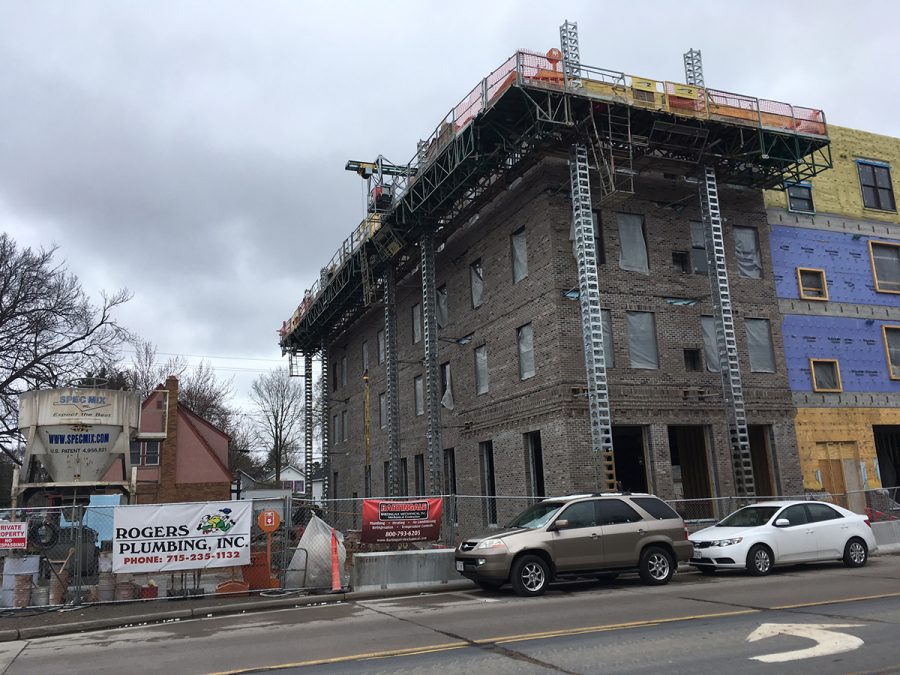University and city work to improve housing
Poor housing conditions in Eau Claire are being faced with policy change
More stories from Hillary Smith
Photo by Hillary Smith
The new apartment complex on Water Street will provide housing for around 201 students.
Tales of housing horrors are not uncommon; be it mold, leaks or terrible landlords, issues with rental houses are an unfortunate reality of the real world.
In Eau Claire, many rental properties have a reputation for having poor conditions while many landlords have a reputation for being unwilling to maintain properties and meet tenant needs.
This is an issue for students and citizens alike, especially considering the general shortage of housing in Eau Claire. It is a multi-faceted problem, with complications and solutions stemming from various places.
The shortage of housing, especially for university students, is one of those. Not having many options enables landlords to have more power over their tenants. The landlords know there are few to none alternative living solutions for renters, even if they are displeased with the property they are on.
This semi-monopoly landlords hold is compounded by a lack of university housing available for students. UW-Eau Claire has been struggling to provide on-campus housing for students in recent years. When the dorms are filled, students have to be placed in hotels or apartments off-campus, which can have a negative impact on their university experience.
Furthermore, if students don’t get one of the limited spots that aren’t reserved for incoming first-year students, they are stuck in a limbo of uncertainty to see if university options open up or if not, if they can sign a lease last minute.
This will not be solved until housing projects are able to move ahead; this will come with students and administration advocating for building projects on the docket to be approved at the state level so expansion may occur.
On a city level, more parameters must be set and enforced for landlords. This may come from proposed updates to the Housing Maintenance Ordinance, which will be discussed by citizens and the Eau Claire City Council on April 24 and voted on the next day.
Some of these proposed changes include updating code provisions, adding a program to inspect properties based on a number of factors (e.g. external housing defects, number of complaints received, construction date, etc.), and expanding language prohibiting retaliation against tenants who report violations of local or state law.
It would behoove students and city members alike to attend this city council meeting and let their voices and concerns be heard; otherwise, landlords may advocate for the power to remain with them, enabling the substandard conditions to persist.
Another method of dealing with unsatisfactory living conditions is brushing up on the housing code. Awareness of local and state laws dealing with housing maintenance standards is helpful for renters to hold their landlords accountable for abiding by those rules and, if they fail to, the tenants may take necessary steps to make sure the conditions are met.
More housing is becoming available, but in the meantime, self-education, policy change and speaking out for the rights of tenants are the best solutions to making sure landlords aren’t slumlords and houses aren’t deathtraps.

